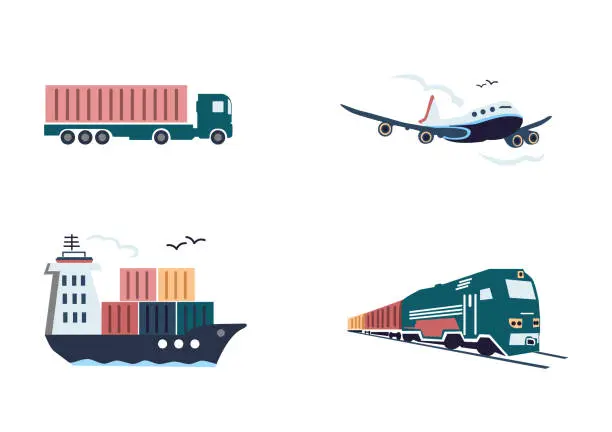
Navigating the Balance: Understanding Transport Costs in Supply Chain Management
- Admin
In the intricate web of global commerce, transport costs serve as a critical factor influencing supply chain decisions, shaping the flow of goods and the competitiveness of businesses. From the cost of shipping containers to fuel expenses and transportation infrastructure investments, understanding and managing transport costs is essential for businesses to optimize their supply chain operations and remain competitive in the marketplace. In this article, we'll delve into the fundamentals of transport costs, explore key factors influencing transportation expenses, and discuss strategies for managing and reducing transport costs in supply chain management.
The Significance of Transport Costs
Transport costs encompass various expenses associated with the movement of goods from production facilities to distribution centers and ultimately to end customers. These costs include freight rates, fuel costs, tolls, taxes, insurance, and handling fees incurred throughout the transportation process. Transport costs play a pivotal role in supply chain management, influencing sourcing decisions, production planning, inventory management, and pricing strategies. By understanding and effectively managing transport costs, businesses can optimize their supply chain operations, improve profitability, and enhance customer satisfaction.
Factors Influencing Transport Costs
Several factors influence transport costs in supply chain management, including:
Distance and Destination: The distance between the origin and destination of shipments directly impacts transport costs, with longer distances typically resulting in higher transportation expenses. The location of the destination, including accessibility and infrastructure availability, also affects transport costs.
Transportation Mode: The mode of transportation chosen for shipping goods, whether it's by air, sea, road, or rail, significantly influences transport costs. Each mode has its own cost structure, advantages, and limitations, with air freight generally being the fastest but most expensive mode, while sea freight is slower but more cost-effective for large volumes.
Fuel Prices: Fluctuations in fuel prices, such as diesel and aviation fuel, can have a significant impact on transport costs, particularly for road and air transportation. Volatility in fuel prices can affect overall transportation expenses and profitability, highlighting the importance of fuel hedging and efficiency measures.
Regulatory Requirements: Compliance with regulatory requirements, including customs regulations, safety standards, and environmental regulations, can affect transport costs. Non-compliance may result in penalties, fines, or delays in shipping, adding to overall transportation expenses.
Strategies for Managing Transport Costs
To effectively manage and reduce transport costs in supply chain management, businesses can implement the following strategies:
Route Optimization: Utilizing route optimization software and algorithms to identify the most efficient and cost-effective shipping routes can help reduce transportation expenses and minimize fuel consumption.
Transportation Mode Selection: Choosing the appropriate transportation mode based on shipment size, urgency, and destination can help minimize transport costs and optimize logistics operations. Considerations such as transit times, reliability, and environmental impact should be taken into account when selecting transportation modes.
Consolidation and Collaboration: Consolidating shipments and collaborating with transportation providers, logistics partners, and suppliers can help pool resources, reduce empty miles, and negotiate favorable rates, leading to cost savings and efficiency gains.
Inventory Management: Implementing lean inventory practices and adopting just-in-time inventory strategies can help minimize inventory carrying costs and reduce the frequency and volume of shipments, thereby lowering transport costs.
Conclusion
Transport costs are a significant component of supply chain management, influencing sourcing decisions, production planning, and customer service levels. By understanding the factors influencing transport costs and implementing strategies for managing and reducing transportation expenses, businesses can optimize their supply chain operations, improve profitability, and maintain a competitive edge in today's global marketplace. As we continue to navigate the complexities of supply chain management, let us remain vigilant in our efforts to balance efficiency and cost-effectiveness in transportation operations.
